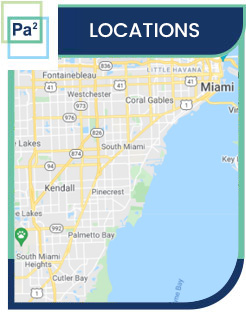When to Get an Allergy Test for Your Child?
Allergy tests are an effective way to prevent allergic reactions and ensure the health and safety of your child so that steps can be taken to avoid consumption or exposure to allergens. Board-certified allergist Dr. Carlos Piniella, MD provides a wide range of allergy testing and treatment for patients of all ages. Visit Piniella Asthma + Allergy today to get specialized and expert care. For more information, contact us today or schedule an appointment online. We have convenient locations to serve you in Coral Gables FL and Palmetto Bay FL.


Table of Contents:
What is the most common allergy in children?
When to get an allergy test for your child?
How do you find out what my child is allergic to?
How to prepare your child for allergy testing?
Ensuring the health and safety of children is one of the top priorities for parents and those working closely with children, and as such, it is a great idea to be informed about allergies among children. Approximately 6% of children hold a form of food allergy and data from Johns Hopkins University shows that peanuts, eggs, and milk are the three most common food allergies for children to have with the most severe reactions typically occurring in children allergic to shellfish, peanuts, tree nuts, or fish. The symptoms of these allergic reactions range quite widely, however, if a child is experiencing wheezing, itchiness, or swelling of the throat and mouth, or gastrointestinal symptoms such as vomiting or diarrhea after being exposed to a common allergen, there is a chance that they are experiencing an allergic reaction and will need medical attention as quickly as possible. On a wider scope, about 20% of children experience seasonal allergies, while nearly 10% have forms of eczema, and anywhere from 10-20% possess allergies to animal dander. Symptoms from these conditions can be exacerbated by the weather and specific times of year. Children with seasonal allergies will likely find their symptoms during wind and rain seasons much worse due to pollen and dust particles being scattered while dry, cold weather and hot, humid weather can increase eczema symptoms.
Allergy tests are an effective way to prevent allergic reactions and ensure the health and safety of your child so that steps can be taken to avoid consumption or exposure to said allergens. For the most part, children can be tested at any time, however, they are generally only provided for children over six months old as there are risks involved for children any younger. With that being said, asking your child’s primary care physician or reaching out to an allergist/immunologist will help determine if your child is ready for an allergy test.
Because of how severe and debilitating allergic reactions can be, testing for specific allergies is a way to minimize or avoid exposure, or seek proper medication if applicable. Tests are straightforward, and generally very quick, with results able to be determined in as quickly as 15 minutes in some instances. One of the common tests run is the skin prick test which involves pricking the skin with a solution of an allergen and checking for a reaction of the skin. This method of testing can be used for a variety of conditions ranging from food allergies to pollen, and even pet dander. If pricking the skin doesn’t seem to show adequate response, an allergist may call for an intradermal test where solutions are injected into the skin. Additionally, this test may also be employed when testing for penicillin allergies and insect venom. Getting blood drawn and running a blood test are yet another way physicians can determine a wide range of allergies as well: food, pet dander, and dust are the most frequently tested allergies through blood. As a final note, food exposure tests or elimination tests may also be used to determine an allergic reaction. For exposure tests specifically, they are performed in a hospital or medical center prepared to handle a severe allergic reaction while elimination tests simply remove the said allergen from a child’s diet for a portion of time to determine if an allergy is present.
Preparation for an allergy test is generally brief; however, there are a couple of things to keep in mind. If you haven’t already, it is best to notify the physician of what has triggered a potential allergic reaction in the past. Also, it will be important to stop medications for a duration prior to the test date indicated by your physician to ensure tests operate to the best of their ability. As for how your child can prepare, it may be best to explain why they are getting the allergy test, reassure them it is not a painful experience, and that the test is acting to their benefit. Bringing a distraction, such as a toy, electronic device, or book, while waiting for the appointment can help a child destress and make them feel better about the visit as well. We serve patients from Coral Gables FL, Palmetto Bay FL, Westchester FL, Brownsville FL, Kendall FL, Pinecrest FL, Richmond West FL, and Goulds FL.

Additional Services You May Need
▸ Asthma
▸ Allergy Testing
▸ Food Allergies
▸ Immunotherapy
▸ Patch Testing
▸ Allergy Treatment
▸ Pediatric Asthma Specialist
▸ Pediatric Allergist
▸ Insect Bite Allergy
▸ Drug Allergy
▸ Seasonal Allergies
▸ Skin Allergy

Additional Services You May Need
▸ Asthma
▸ Allergy Testing
▸ Food Allergies
▸ Immunotherapy
▸ Patch Testing
▸ Allergy Treatment
▸ Pediatric Asthma Specialist
▸ Pediatric Allergist
▸ Insect Bite Allergy
▸ Drug Allergy
▸ Seasonal Allergies
▸ Skin Allergy


